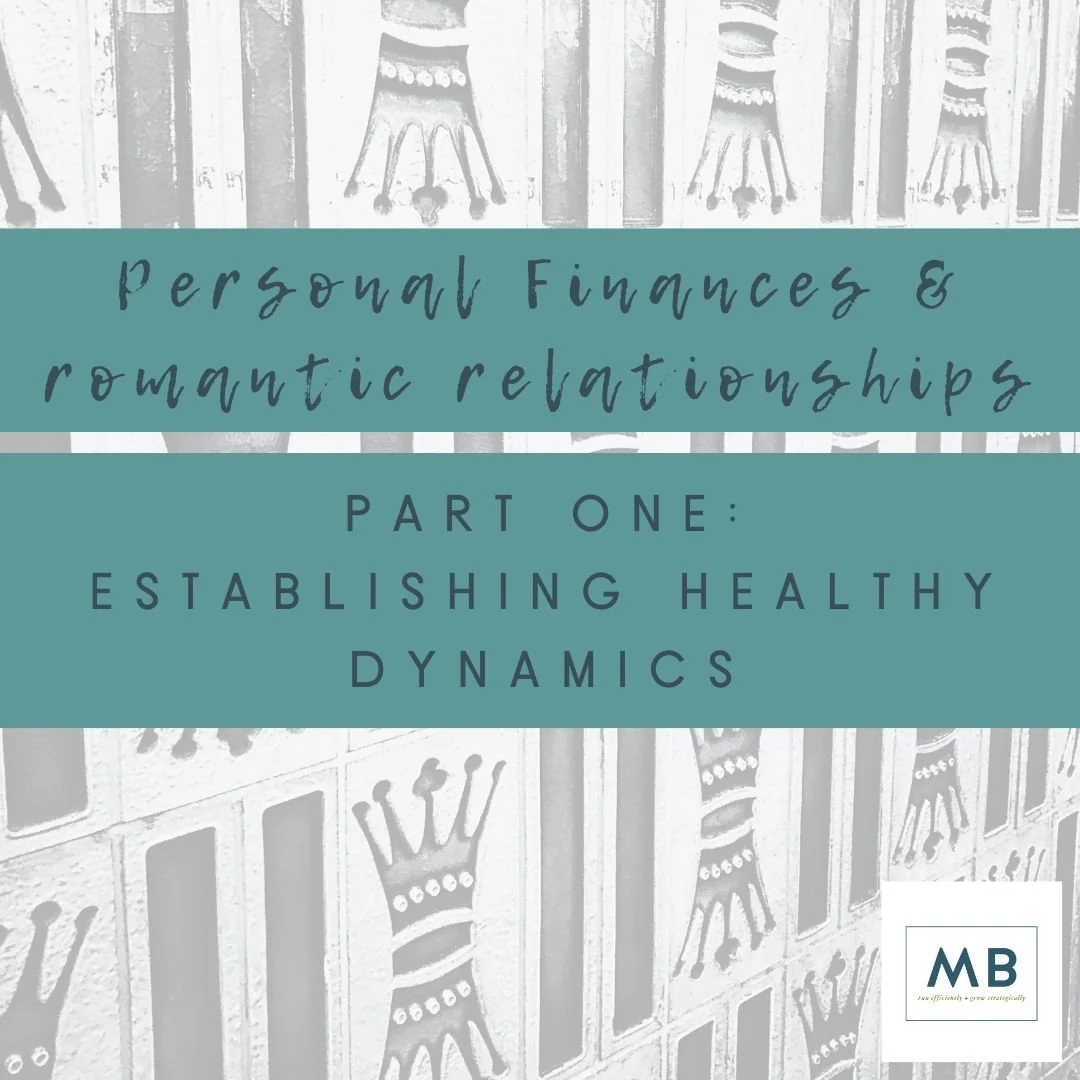Personal Finances & Romantic Relationships Part One: Establishing Healthy Dynamics
Picture it: You’re in a hospital room where your beloved partner lies in a coma. As the monitors beep in the background, you lean in & whisper ”hey, what's the login for the credit card?”
Relationships are tricky business. On one hand, you trust this person with your whole life–your thoughts & feelings, maybe children & even (GULP) your finances. It’s estimated that financial difficulties are a major factor in 40% of divorces. What can you do to make sure that money doesn’t become a ticking time bomb in your relationship? Here are some healthy habits that can set you up to have a more secure relationship when it comes to finance:
Set Expectations: When blending finances, the foundation is setting expectations. If you have disproportionate income, this may mean contributing to shared expenses as a percentage of your income. If your earnings are relatively equal, 50/50 might make more sense to you. Regardless of what you decide, it should be clear what expenses are considered “shared”, how they will get paid & how everyone will be contributing to them. Even if the bulk of the financial tasks fall to one person, both should know how to access everything.
Spending agreements: I would recommend having an account for shared expenses like rent & utilities, one for shared savings (emergencies, trips, etc) & separate accounts of your own for discretionary spending. If you choose to forego your own accounts & decide to mingle all your funds, you should have an agreed upon spending thresholds for purchases that haven’t already been agreed upon.
Check in regularly: Put it on the calendar & make it a regular non-negotiable date with your finances. Review your budget, check in on your goals & adjust where needed. If you find you are having a hard time sticking to these check-ins, try adding a special element to keep it fun–try a new bottle of wine every time, or enjoy a special meal while you discuss.
Whatever financial arrangements you make with your partner, it’s very important to make sure you are in agreement. If you feel like the dynamic is unbalanced, that’s a red flag. In part two, we will talk about unhealthy money dynamics & how to spot financial abuse.

